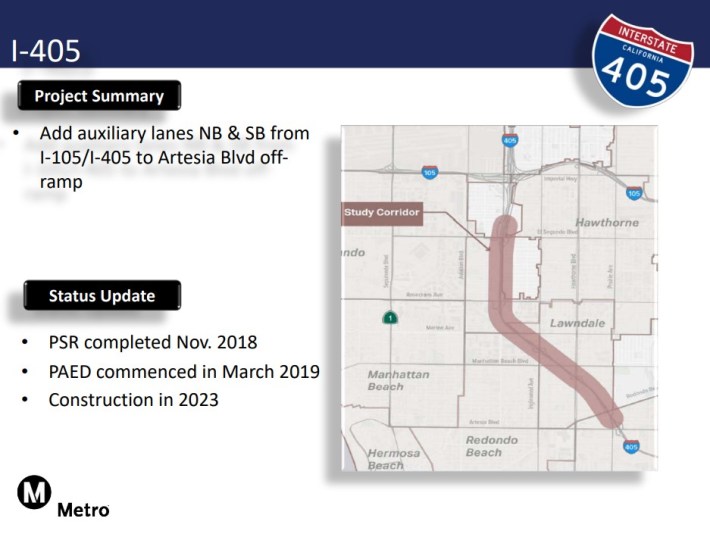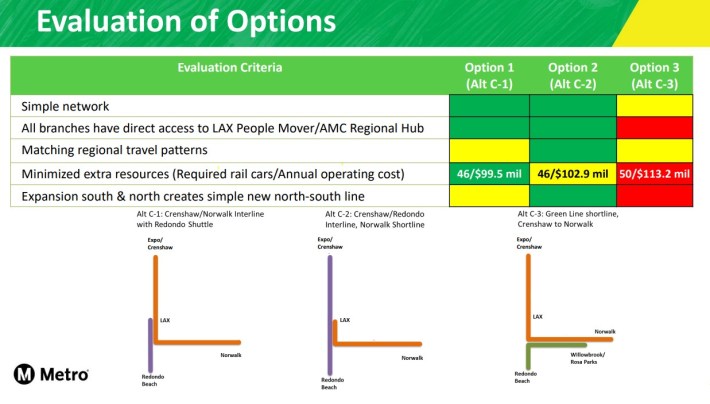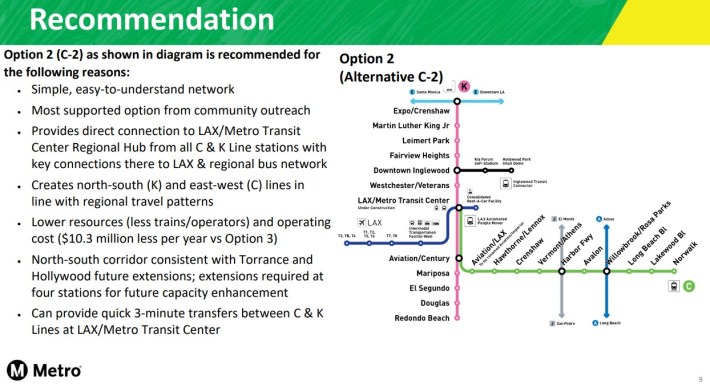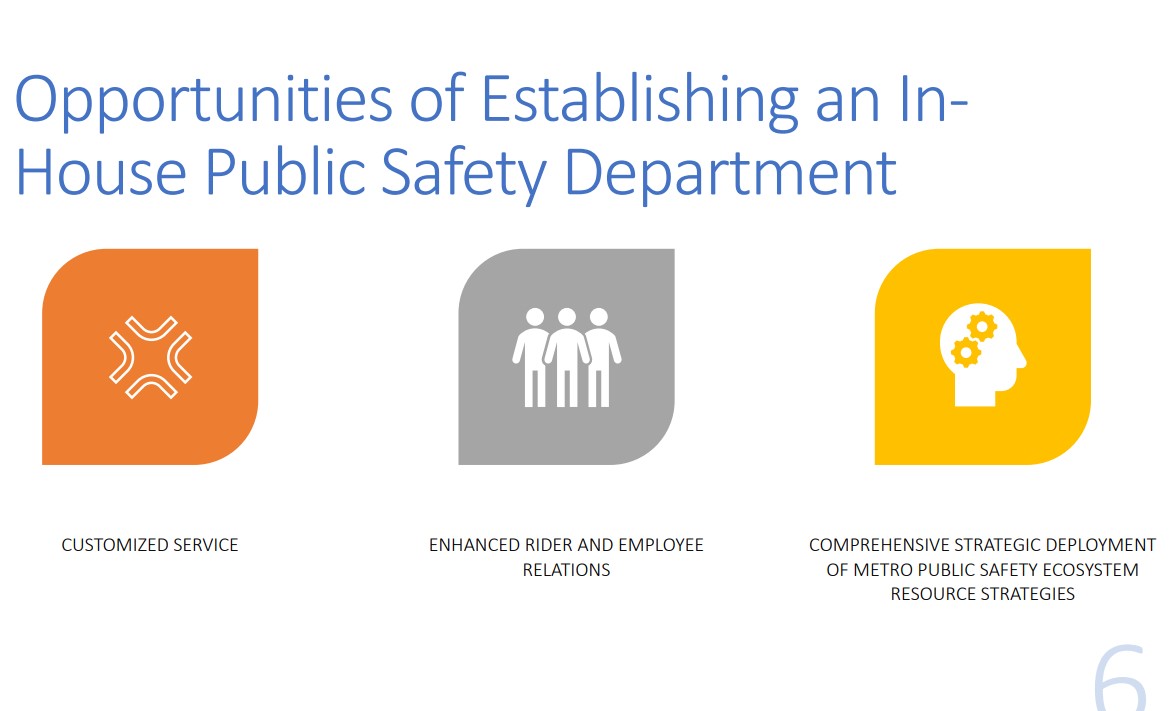Some highlights from yesterday's Metro board of directors meeting:
Plans to Bring Transit Policing In-House
The Metro board continues to struggle with how to manage transit policing. Crime and deaths have recently increased under the current multi-agency contract with LAPD, L.A. County Sheriff Department, and Long Beach PD. Metro has struggled to oversee contracted agencies, with LASD claiming that they “weren’t going to have a bus company tell them how to deploy their resources.”
The board recently largely paused nascent efforts to shift funding away from armed response, instead opting to renew the problematic status quo for an additional three years.
Meanwhile, Metro kicked off a feasibility study on how the agency could establish its own full-fledged police force. Transit advocates, including the Alliance for Community Transit (ACT-LA), have been vocal in opposition to in-house Metro policing, continuing to press the agency to shift resources to care-based programs
Yesterday, the board received the staff report regarding the feasibility, benefits, and drawbacks of in-house policing. The board approved a motion for Metro to develop an implementation plan, which would come back to the board for a vote in January 2024.
Widening the 405 Freeway
As expected, the Metro board approved shifting and adding funds to consolidate $40 million for widening the 405 Freeway from the 105 Freeway to Artesia Boulevard in the South Bay. The project includes multiple short "auxiliary lane" segments, which allows Metro to skip doing a full environmental clearance process. (Though this project is mostly "aux lanes," it includes a non-auxiliary lane near the 105, but Metro and Caltrans already declared it exempt from environmental review using the auxiliary lane loophole.)

Metro plans to seek additional state and/or federal grant funding for the $100-120 million project. Infrastructure funding is relatively plentiful these days, due to the bipartisan federal bill and state gas tax revenue.
Noting having received emails opposed to this freeway widening, Boardmember Lindsey Horvath questioned the purpose of Metro 405 Freeway expansion there. Metro staff responded that it is just auxiliary lanes, so not capacity expansion, but "a safety project" for "safety and operational improvements."
Plan for C/K Line Operations
The board was split on operations plans for the C (Green) and K (Crenshaw) Lines.
When the Metro Airport Connector opens (expected Fall 2024), the C and K Lines will connect in a "Y" centered at LAX. This configuration presents Metro with several possible options to run the current C Line combined with portions of the K Line.
In 2018 the C/K operations debate pitted South L.A. against South Bay. Yesterday, it was Gateway Cities against South Bay.

In the past, Metro staff had pushed the lowest-cost highest-ridership alternative (C-1) that would have created a very short line in the South Bay. South Bay interests pushed for a more complicated option (C-3) that didn't isolate the South Bay.
This time around, the South Bay and South L.A. supported Metro staff's new recommendation (option C-2) which runs both lines in relatively simple north-south and east-west configurations.

Public testimony featured numerous Gateway Cities speakers supporting option C-1, and many South Bay speakers supporting option C-2. Ultimately the board unanimously approved option C-2, alongside a motion ensuring prompt transfers at LAX.
Mayor Karen Bass Elected Board Chair
Yesterday was the end of Board Chair Ara Najarian's term. Next month, L.A. Mayor Karen Bass will start her first year-long term as Board Chair.






